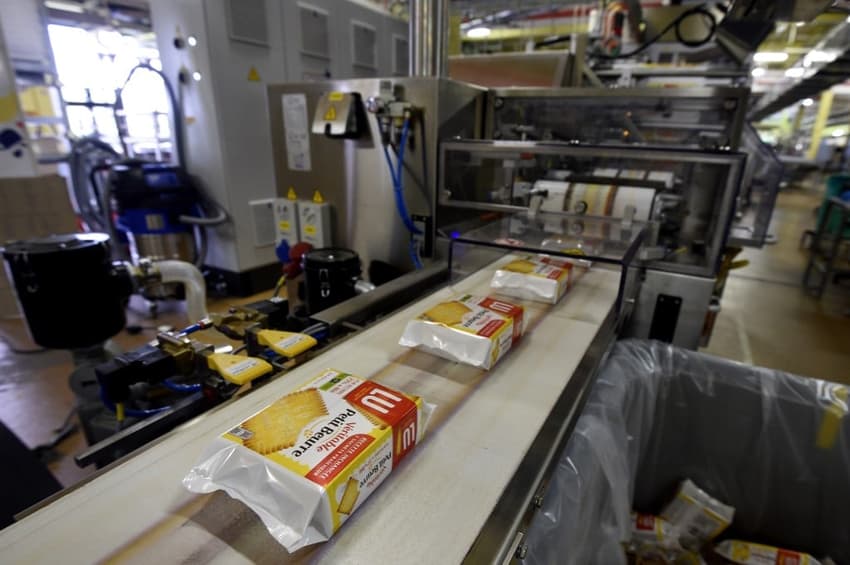Is France's famous LU Petit Beurre biscuit under threat?

France's famous Petit Beurre biscuits are facing an uncertain future after money troubles and industrial unrest at the factory where they are made.
The highly popular biscuit - with its oblong shape, 52 teeth and optional slab of chocolate on one side - has been a favourite in French households since it was first put into production in 1846.
But now its future is in doubt after a string of troubles at the factory in La Haye-Fouassière, near Nantes, where they are produced.
READ ALSO
-
Striking French workers blockade world's largest Nutella factory
-
Revealed - the hot French dining trend that's delicious, traditional and cheap
-
Why you should lever say 'bon appétit' in France

French newspaper Le Figaro reported a decrease in production volumes, from 45,000 tonnes in 2014 to 31,000 tonnes today.
The number of employees has fallen from 500 to 330, according to figures from the trade union CGT, which also warns of the loss of around 15 jobs by 2020.
And this week the factory's troubles intensified with calls for strike action over the dismissal of a long-serving employee.
The American agri-food group Mondelez, which has owned LU since 2007, says the dismissal is due to repeated health and safety breaches, but this has been challenged by union officials, who have spoken of a tense atmosphere at the factory.
The biscuits have been a staple treat for many since childhood since they were first created by Louis Lefèvre-Utile in his parents' biscuit company.
The classic Petit Beurre range was later expanded with the addition of dark or milk chocolate with the figure of the petit ecolier (little schoolboy) that has become the emblem of the brand.
Comments
See Also
The highly popular biscuit - with its oblong shape, 52 teeth and optional slab of chocolate on one side - has been a favourite in French households since it was first put into production in 1846.
But now its future is in doubt after a string of troubles at the factory in La Haye-Fouassière, near Nantes, where they are produced.
READ ALSO
- Striking French workers blockade world's largest Nutella factory
- Revealed - the hot French dining trend that's delicious, traditional and cheap
- Why you should lever say 'bon appétit' in France

French newspaper Le Figaro reported a decrease in production volumes, from 45,000 tonnes in 2014 to 31,000 tonnes today.
The number of employees has fallen from 500 to 330, according to figures from the trade union CGT, which also warns of the loss of around 15 jobs by 2020.
And this week the factory's troubles intensified with calls for strike action over the dismissal of a long-serving employee.
The American agri-food group Mondelez, which has owned LU since 2007, says the dismissal is due to repeated health and safety breaches, but this has been challenged by union officials, who have spoken of a tense atmosphere at the factory.
The biscuits have been a staple treat for many since childhood since they were first created by Louis Lefèvre-Utile in his parents' biscuit company.
The classic Petit Beurre range was later expanded with the addition of dark or milk chocolate with the figure of the petit ecolier (little schoolboy) that has become the emblem of the brand.
Join the conversation in our comments section below. Share your own views and experience and if you have a question or suggestion for our journalists then email us at [email protected].
Please keep comments civil, constructive and on topic – and make sure to read our terms of use before getting involved.
Please log in here to leave a comment.